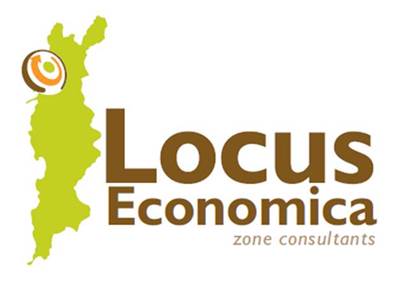The ‘Champs Elysees’, the main street in the Zaatari refugee camp for Syrian refugees in Jordan. Zaatari has become the largest and most dynamic refugee settlement in the Middle East and a small indication of the potential for a refugee city. / Photo by Russell Watkins/Department for International Development
Locus Economica is pleased to support the NGO Refugee Cities as a preferred cause. Refugee Cities exists to use zones as a response to the migration crisis. A refugee city would be a special economic zone (SEZ) in which migrants could legally work, start their own businesses, and train in new skills.
SEZs in many countries have become both engines of growth and tools for launching policy reforms. They are, effectively, "second-best," near-term, and pragmatic policy tools when the political will for nationwide reform simply isn't there.
For that reason, refugee city-SEZs are an innovative solution for countries experiencing influxes of migrants but unwilling to admit any more asylum seekers. A refugee city allows them to receive some of the economic benefits of the refugees' potential, while avoiding political resistance to nationwide integration.
The key benefits of SEZs for many businesses are the alternative policies they implement. SEZ, to be effective, generally need something "special" that improves on the laws prevailing in the surrounding country. The special characteristic of a refugee city for businesses would be the newfound ability to utilize refugees' skills and creative energy. Refugee cities would also feature other characteristics of best practice SEZs, such as a competitive and streamlined business regulatory environment and preferential tariff treatment, possibly even preferential access to the EU.
Most importantly, refugee cities provide migrants with the rare opportunity to use and develop their capabilities to build a better future for themselves and their families.
Refugee Cities was established by Locus's General Manager, Michael Castle Miller, who serves as Executive Director. Locus Trade Policy Specialist, Harold Godsoe, serves as Refugee Cities' Director of Law and Policy.
